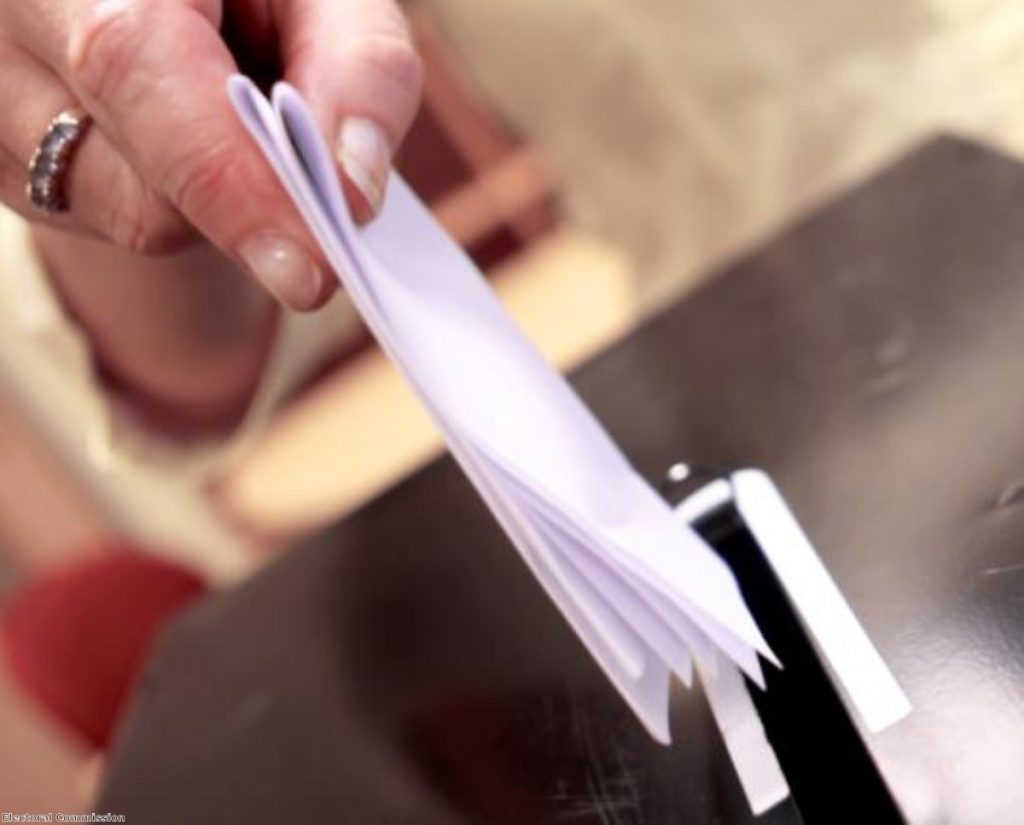Why Brighton Pavilion voters might run into a Jamaican MP today
By Fitz Jackson MP
This week, I've been joined by a group of 20 international MPs and electoral officials – from countries ranging from Rwanda to Jamaica to India to Ghana, among others – who are in the UK to observe the conduct and electoral practices of the general election. We've spent three days in each of a sample of six constituencies and are now observing polling day through its full 20-hour run from the open of polls to their close and the count process. We will then gather the findings into a report evaluating the way in which the UK runs elections, with clear implications for the strength of its democracy.
To the UK reader, if he or she is at all familiar with the concept of election observation, this kind of mission might seem more appropriate to a vote run in a young or insecure democracy. Recent high-profile election observer missions have been deployed to the elections in Sri Lanka, Fiji, Nigeria and Malawi; whilst each of these was given a broadly clean bill of health, there were doubts in advance concerning the integrity of the electoral process in these countries.
These observer missions represented an opportunity for their governments and electoral commissions to prove they were up to the task of administering a free and fair election. The reports produced did, however, highlight a number of weaknesses in each of these examples: a lack of media freedom in the reporting of the election, for example, or issues with voter ID technology. Whilst these problems were not in the event unfairly used to influence the result of the election, they did create the potential to do so. It is to be hoped that the recommendations made by the missions to strengthen practices are acted upon to guarantee the continued integrity of democracy.


In the UK in 2015 we're 750 years on from the first assembly of the House of Commons, 183 years from the first Great Reform Act of 1832 and nearly 90 years since universal suffrage was finally granted in 1928. One might think that the country must surely be so well-versed well versed in running elections that there could not possibly be questions about the rigour of its electoral practice. One might even question whether conducting an assessment of the election is a necessary or even worthwhile exercise. Unfortunately, robust electoral practice can never be taken for granted!

Fitz Jackson (far right) and the other members of the CPA's monitoring mission in Brighton Pavilion
A similar evaluation undertaken at the 2010 election highlighted a number of shortfalls in UK conduct as compared with international standards of best practice. For instance, it was considered highly unusual to conduct an election in which voters' identification is never checked, not during the registration process nor at polling stations. And there is no clear use of markers to indicate that someone has voted. The use of pencils to mark ballot papers, as opposed to indelible pens, is equally unusual.
The 2010 report also highlighted more serious flaws in the registration process – many of which have subsequently been remedied – such as registration by the 'head of household' and decentralised electoral rolls, which mean that voters can simultaneously be registered in two different constituencies. Whilst in practice these weaknesses are not known to be currently exploited for corrupt or fraudulent purposes, it clearly would be preferable to have a system with no such vulnerabilities.
Overall, however, the observer group in 2010 was impressed with the atmosphere of trust and honesty in which the election took place. In particular, the group was struck by the calm, civilised and transparent manner in which campaigning, voting and counting of ballots were executed. Its report suggested that younger democracies might well look to learn from this aspect of UK elections.
This highlights another important outcome of the observation of the 2015 election – the opportunity for parliamentarians and electoral officials from other countries to observe and learn from the UK's successes. These first-hand experiences will enable us to further improve electoral practices, hopefully enabling them to work towards implementation in their own countries. Best practice is an ever-evolving standard, and it is critical that democracy is protected to the greatest possible degree across the world.
This year's mission will assess progress on the issues highlighted in 2010, as well as anything further that comes to light. Following the observation in the six constituencies – Birmingham Ladywood, Brighton Pavilion, Exeter, Glasgow East, Watford and Wirral West – recurrent findings will be released in a public statement at a press conference on Friday May 8th. We shall then deliberate further to produce a more detailed report at the end of May, which will be submitted to the Electoral Commission for their consideration. Hopefully its recommendations will be put into action in advance of the 2020 elections.
Fitz Jackson is a member of the Jamaican parliament. The Election Assessment Mission’s initial findings will be released in a preliminary statement at a press conference at 1600 on Friday 8 May, taking place in the CPA Room, Westminster Hall, Houses of Parliament. For any further information or to be accredited to attend, please contact Julia Beck, Communications Manager, CPA UK, on beckjk@parliament.uk, 0207 219 5379 or 07917 488 653
The opinions in Politics.co.uk's Comment and Analysis section are those of the author and are no reflection of the views of the website or its owners.












